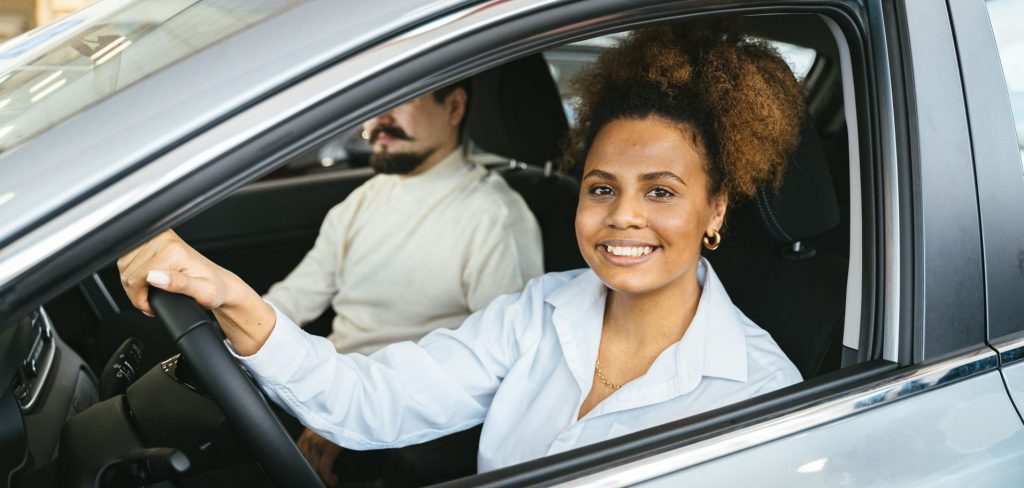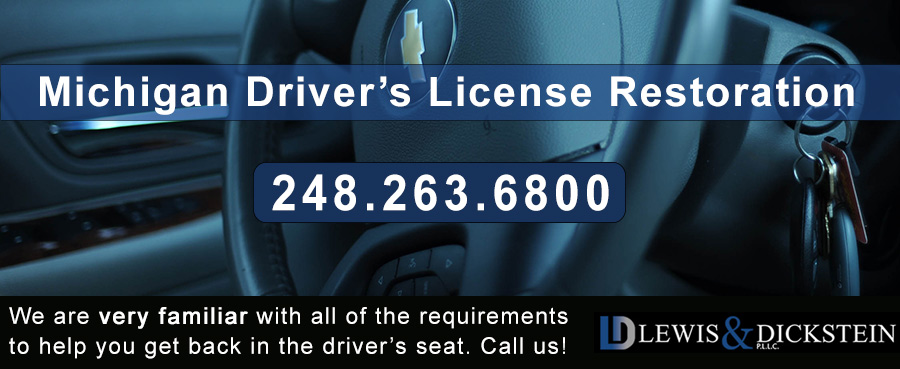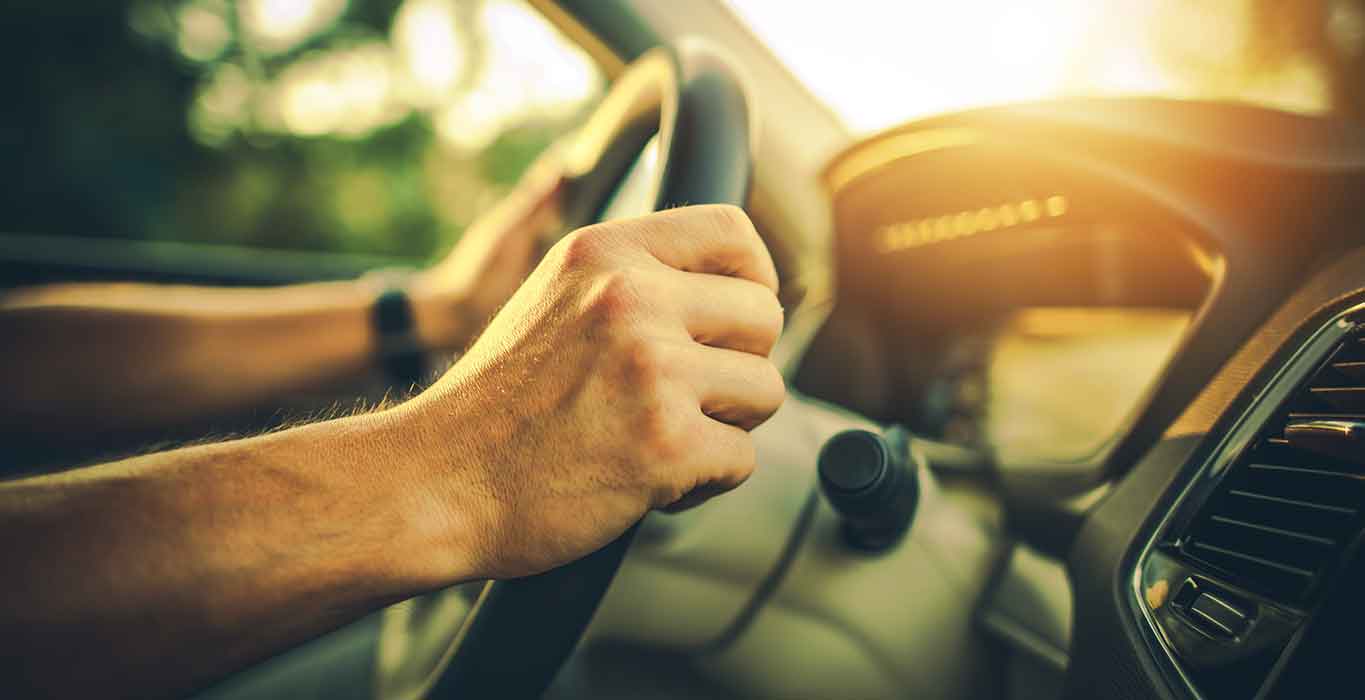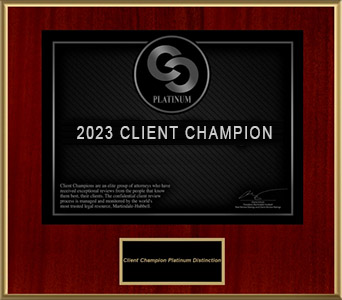Driver’s License Appeal and Restoration Attorney
Attorneys Dedicated to the Passionate, Tireless, and Highly Effective Pursuit of Restoration of Driver’s License Privileges

Winning Michigan Driver’s License Restoration Attorneys
We understand how the inability to drive can dramatically negatively affect family, income, medical treatment, and personal obligations. Losing an operator’s license can often result in a perpetual circle of hardship that seems inescapable. The hardship of being unable to drive legally is significant. When you need to get your license back, the Michigan driver’s license appeal and restoration attorneys with LEWIS & DICKSTEIN, P.L.L.C. will do whatever is necessary to help you, and we are not afraid to win! Most importantly, we have an unparalleled track record of winning driver’s license appeals with Driver Assessment, the Driver Assessment and Appeal Division (DAAD), and Circuit Court.
How to Win a DAAD Hearing the First Time
The belief that someone cannot win license restoration on their first appeal to the DAAD is a myth created by unprepared and ineffective lawyers who wanted an excuse for losing DAAD appeals. The truth is that a petitioner should expect to win a Michigan driver’s license appeal if they adequately prepare and have credible, persuasive proof and evidence. You can and should win! If you do everything correctly, you should be able to win even a first DAAD appeal. The DAAD was formerly known as the DLAD.

Letters of Community Support and Other Evidence
Letters of community support must be well-written, typed, at a proper length, consistent, and focused on the issues most important to the hearing officers. It takes years of specialized practice to assist a client’s friends and family with crafting letters that convince a Hearing Officer they are authentic and credible.
Like the substance abuse evaluation and the petition, other evidence submitted must be entirely consistent with any additional evidence submitted. Any discrepancies can result in the denial of an appeal. A petitioner’s testimony must be practiced and rehearsed before the hearing. The Hearing Officers are experienced lawyers and look for reasons to deny restoration appeals filed by drivers with alcohol or drug-related convictions. The burden is on the petitioner to prove the following:
- that their alcohol or substance abuse issues are under control and likely to remain under control, and
- that the petitioner is not a danger to him or herself or others.
Statutory Criteria for License Restoration under the Michigan Administrative Code
Under Michigan law, the hearing officer must deny an appeal for restoration of a driver’s license unless the petitioner proves, by clear and convincing evidence, the following:
- (i) That the petitioner’s alcohol or substance abuse problems, if any, are under control and likely to remain under control.
- (ii) That the risk of the petitioner repeating their past abusive behavior is a low or minimal risk;
- (iii) That the risk of the petitioner repeating the act of operating a motor vehicle while impaired by, or under the influence of, alcohol or controlled substances or a combination of alcohol and a controlled substance is a low or minimal risk.
- (iv) That the petitioner has the ability and motivation to drive safely and within the law.

A Proven, Reliable, Winning System for Driver’s License Appeal and Restoration
LEWIS & DICKSTEIN, P.L.L.C. has a winning system. Our team designed, tailored, and perfected our proven system over decades to maximize our client’s chances of attaining the best possible outcome. The most common form of license restoration case is the Driver’s License Appeal Division (DLAD) appeal based upon repeated drinking and driving convictions like OWI, DUI, and DWI. Generally, the Michigan Department of State will revoke the driving privileges of someone convicted of two drinking and driving cases (or driving under the influence of controlled substance cases) within seven (7) years or three within ten (10) years. DLAD hearings involve an appeal hearing before an Administrative Law Judge (hearing officer).
Losing a Michigan Driver’s License Appeal is Not an Option!
Suppose you consider appealing a Michigan driver’s license revocation to the DLAD or Circuit Court. In that case, presenting the best, most persuasive, and most compelling case to the hearing officer is critical. Winning takes more than just intensive preparation; it takes a tried and true system designed for winning. If the DLAD hearing officer denies your appeal, you will have to wait a minimum of one additional year before you can attempt to restore your driving privileges. People who’ve lost their appeals routinely hire LEWIS & DICKSTEIN, P.L.L.C. to appeal the decision and fight to regain their rights. Invariably, most of these individuals represented themselves or had an ineffective lawyer. If losing is not an option, you need a winning strategy. Investing in a successful and effective DLAD lawyer is critical. No outcome is guaranteed, but we can give you the best chance to win.

The Driver’s License Appeal and Restoration Hearing
An attorney for the Michigan Secretary of State (SOS) will serve as the hearing officer and decide your case at the hearing. You must attend the license restoration hearing with your Driver’s License Appeal and Restoration Attorney at the designated location on the scheduled date. The hearing will occur in an SOS office.
Driver’s License Appeal Hearing Steps
1. Arrive Early
It is advisable to arrive at least 15 minutes early. If the administrative hearing officer has a lobby, sit and wait. If the SOS office is inside a branch office and someone else is in the room for a hearing, you should wait until they are finished before entering. Typically, these hearings begin on time and last less than one hour.
2. Look for the DAAD Hearing Office
In the lobby of the SOS office, look for a small office room labeled “DAAD hearings.” Some hearing offices are located next to or separate from the ordinary branch office. You are not required to check in with anyone. Sit in the lobby with your lawyer and wait to be called. If checking in is necessary, let your lawyer take care of it.
3. How The Hearing is Conducted
The hearing officer may attend the hearing in person or via videoconferencing. If your hearing is conducted via videoconferencing, a television will turn on at the appointed time, and the hearing officer will begin the hearing at that time. If the hearing officer is present, they usually start the meeting promptly at the scheduled time.
4. Review of Testimony and Evidence
Before deciding whether or not to reinstate your license, the hearing officer will review your testimony and all the evidence. The Hearing Officer might make copies of any evidence brought to the driver’s license appeal hearing; however, you should submit all evidence electronically before the hearing. Maintaining a copy of the letters and other documents you submitted will be helpful, as the hearing officer may refer to them. You may bring witnesses if you wish, but the hearing officer may state that the letters you submitted from them contain all the information they require.
5. Decision of the Hearing Officer
You will receive a written decision via mail or email, based on your preference. The decision could be rendered on the same day as the hearing or take several weeks.
6. Appeal if Necessary
In the event your appeal for restoration is unsuccessful. You can appeal to your county’s circuit court and request reinstatement of your driving privileges. Working with a qualified, experienced lawyer from the onset increases your odds of your restoration petition’s success so an appeal is unnecessary.
Driver’s License Appeal and Restoration Testimonials
“I was facing an uphill battle after losing my license due to multiple OWI convictions. I thought there was no hope of ever driving again. But then I found LEWIS & DICKSTEIN, P.L.L.C. Their team didn’t just take on my case—they fought for me every step of the way. They understood the system inside and out, and with their expert guidance, I was able to get my driving privileges restored. The sense of freedom and relief I now feel is indescribable. I can’t thank them enough!”
— J.B.
“After my second DUI, I didn’t think I’d ever see the inside of a car as a driver again. But LEWIS & DICKSTEIN, P.L.L.C. changed that. From the first consultation, they laid out a clear, strategic plan to get my license back. They handled everything with professionalism and care, always keeping me informed and prepared. Thanks to their persistence and expertise, I’m back on the road today, and I couldn’t be more grateful.”
— M.S.
“I had lost my license after two drunk driving convictions, and I was overwhelmed by the thought of trying to get it back. LEWIS & DICKSTEIN, P.L.L.C. made the impossible possible. They took the time to understand my situation and crafted a personalized approach to my case. Their attention to detail and commitment to my success were evident throughout the entire process. Today, I’m driving again, and it’s all because of their hard work and dedication. I highly recommend them to anyone in a similar situation.”
— K.L.

Our Driver’s License Appeal and Restoration Attorneys Can Help You.
Many people attempt to achieve license restoration without a lawyer or with an inferior or general practice attorney. The truth is that most people who are unrepresented or who have bargain lawyers fail to achieve license restoration following a revocation for habitual drinking and driving offenses. DAAD hearing officers hold those with multiple convictions for OWI, DUI, or any Operating Under the Influence of Alcohol conviction to a very high degree of scrutiny. A genuinely great DLAD attorney will have decades of experience winning license restoration cases and a strategy to WIN restoration when others would not be successful. This is the type of experience and expertise that LEWIS & DICKSTEIN, P.L.L.C., brings to the table for our clients. Call for a free consultation, and we will discuss your situation, answer your questions, and work with you to develop a winning strategy.
The license restoration attorneys with LEWIS & DICKSTEIN, P.L.L.C. can help you with an appeal to restore your driving privileges. We would value the opportunity to discuss your situation and help you get your license reinstated.
Call us today at (248) 263-6800 for a free consultation or complete an online Request for Assistance Form. We will contact you promptly and find a way to help you.
We will find a way to help you.
We Are Not Afraid to Win!
Driver’s License Appeal and Restoration Process
The process for driver’s license restoration following a second OWI conviction in Michigan is as follows:
Wait period: After a second OWI conviction, the individual must wait at least one year before applying for license restoration.
Steps for a Driver’s License Appeal in Michigan
1. Sobriety
The individual must demonstrate sobriety, typically through participation in a substance abuse treatment program, Alcoholics Anonymous (AA) meetings, or some organized rehabilitation education or therapy.
2. Proof of Sobriety
The individual must provide evidence of their sobriety, such as certificates of completion from treatment programs or AA meetings and letters from family/friends, to the Michigan Secretary of State.
3. Hiring an Attorney
It is recommended that individuals hire a Michigan license restoration attorney to help them navigate the process and increase their chances of a successful outcome. Self-representation or working with an ineffective lawyer can make future attempts to restore their license more difficult.
4. Secretary of State Hearing
The individual must attend a hearing with the Michigan Secretary of State to present their case for license restoration. They must provide evidence of their sobriety and demonstrate that they are a safe and responsible driver.
5. Decision
The Secretary of State will decide on the license restoration request. If the request is approved, the individual will be issued a restricted license and may begin driving again. If the request is denied, the individual must wait another year before reapplying. In the meantime, the person can file an appeal to a Circuit Court judge requesting they reverse the order denying license restoration.
It’s important to note that the process can be complex and varies depending on the individual’s circumstances. An attorney can provide guidance and help increase the chances of a successful outcome.
Frequently Asked Questions About Driver’s License Appeal and Restoration
How much does a driver’s license restoration lawyer cost in Michigan?
A skilled Driver’s License Appeal and Restoration Attorney will charge a fee commensurate with their training, experience, track record, and proficiency. Prices can range from $2,500 to $10,000, depending on the case’s complexity, the lawyer’s reputation, and the necessary work.
How do I get my Michigan driver’s license reinstated?
If your license was revoked due to multiple OWI convictions within seven (7) or 10 years, you must file an appeal with the Michigan Department of State’s DAAD. It is in your best interest to work with the best lawyer you can get to assist you with the restoration process. All the odds are stacked against you, and it takes a qualified lawyer to turn the tables in your favor.
How do I get my license back after a second DUI in Michigan?
If your license has been revoked or suspended by the Michigan DAAD (Driver Assessment and Appeal Division), you may be able to appeal for license restoration. Here are the steps to follow:
- Determine your eligibility: Before the appeal process, ensure you are eligible for license restoration. If you do not know how to check your eligibility for license restoration, an attorney can assist you. In most cases, the Michigan Department of State sends a letter indicting when someone is eligible to apply.
- Obtain necessary documents: You must obtain several documents to support your appeal, including a substance abuse evaluation, treatment or sobriety verification, a driving record, letters of community support, and negative drug testing results.
- Submit your appeal: You can submit your request online, by mail, or in person. You must complete the appeal form and provide all necessary documents and fees.
- Attend a hearing: After you submit your appeal, you will receive notice of a hearing. You must attend this hearing, in person or by video, and present your case to the hearing officer.
- Await decision: After the hearing, the hearing officer will decide whether to grant or deny your appeal. If your appeal is granted, you must complete any requirements before your license is restored, including paying a license reinstatement fee.
- Circuit Court Appeal: If your DAAD appeal is unsuccessful, you can file an appeal with the Circuit Court for the county where you reside.
It is important to note that the appeals process for license restoration can be complex and time-consuming. You may want to consider hiring an attorney specializing in license restoration to assist you with the process.
How do I check the status of my driver’s license in Michigan?
To check the status of your driver’s license in Michigan, you can visit the Michigan Secretary of State’s website and follow these steps:
- Go to the Michigan Secretary of State website: https://www.michigan.gov/sos/
- Click the “Driver’s License & ID” tab on the top navigation bar.
- Under the “Online Services” section, click “Check Driver’s License Status.”
- Enter your personal identifying information.
- Click on the “Search” button.
The website displays your license’s current status, including any suspensions or restrictions. If you have trouble accessing your license status online, contact the Michigan Secretary of State’s Office at 888-SOS-MICH (888-767-6424) for assistance.








